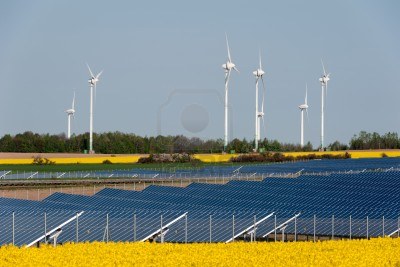List of Programs Implemented by the MNRE under the Grid Connected, Off-grid and Decentralized Systems
SunEdison to sell its Original Core Semi Business – What a Turnaround
September 6, 2013List of Institutes/ Agencies under MNRE to promote Renewable Energy in India
September 8, 2013MNRE or Ministry of New and renewable Energy is a Government body formed to develop and promote the Renewable Energy usage in India. MNRE has designed and implemented different programs under grid connected, off grid and decentralized system to mainly enable grid competitive prices to use the clean and green energy as power source. These programs also include research and development of the different sources of energy.
Read Pros and Cons of Renewable Energy – A Detailed Explanation on GWI.
Grid Connected Power
These involve private investment with favorable tariff policies. The different programs implemented by the MNRE under Grid connected power are:
2) Bio-Power – which further includes:
i) Biomass power / bagasse cogeneration
ii) Non-bagasse cogeneration
iii) Biomass gasifier
iv) Urban & Industrial wastes
3) Small Hydro Power – upto 25 MW station capacity
4) Solar Power – including both Thermal and Photovoltaic solar power.
Off- Grid Power
Off grid power programs have been mainly implemented to support the energy requirements of communities isolated from electricity. These include rural and remote areas, areas where grid electricity is not available and for meeting captive needs. The different programs implemented by the MNRE under Off-Grid power are:
1) Biomass based heat and power projects and industrial waste to-energy projects
2) Biomass Gasifiers
3) Watermills/micro hydro projects
4) Small Wind Energy & Hybrid Systems
5) Solar PV Roof-top Systems.
Decentralized System
MNRE also provides various renewable energy technologies in rural areas without any electricity. These are the areas which are the most benefited by the use of renewable energy as their source of power. Some such technologies that are being increasingly used in Indian villages and rural areas are solar lanterns, solar home lighting systems, solar street lights, solar cookers and water heating systems under the solar energy; biogas plants for a family, biomass based power generators under biomass energy; Wind pumps and Micro-Hydal plants.
Source: MNRE

